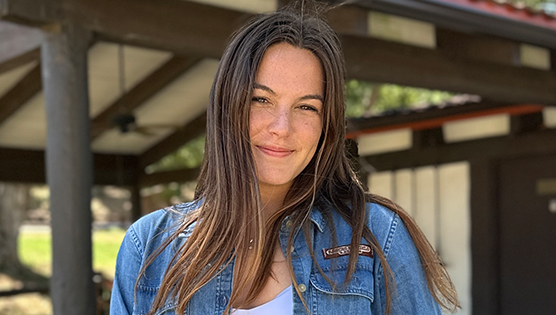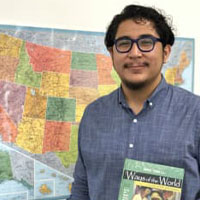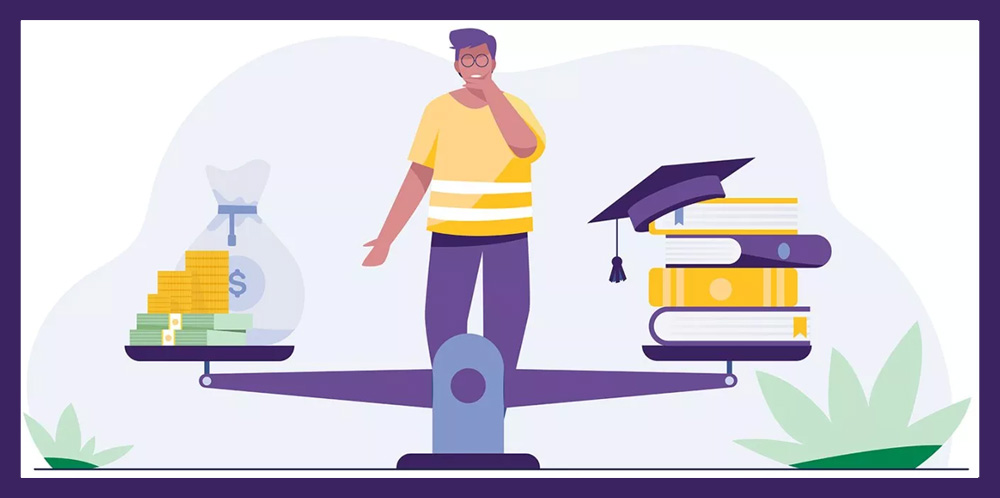History Pedagogy
Teach future members of society about the past.
Study a well-rounded liberal arts curriculum that’s designed specifically for aspiring social science teachers.
Earn a history degree certified for teachers
Cal Lutheran is one of few liberal arts institutions in California with a Single Subject Matter Program (SSMP) in history that’s approved by the California Commission on Teacher Credentialing. This means you’ll have the unique opportunity to earn a history degree certified for teachers, while also getting to explore complementary subjects like the arts and political science.
Gain interdisciplinary preparation as a future educator
Our program’s interdisciplinary approach to the social sciences will help you become a more well-rounded educator and historian. With courses ranging from “World Civilizations” to “United States Women’s History,” you’ll develop a firm understanding of the events that shaped our modern world while focusing on topics that interest you. Immersive experiences like international travel courses and archival research will offer valuable insight on pieces of history to share with future young scholars.
Expedite the path to your teaching credential
Students who go on to attend our Graduate School of Education can complete their social sciences teaching credential program in just one year after finishing their undergraduate studies, saving time and money. Through our partnerships with local private schools, you can also start a full-time teaching position before completing your credential.
To find out more about our credential programs and degree options, you can request information or email CLUgrad@CalLutheran.edu.
At a Glance

Degree Type
Bachelor of Arts
Department
School/College
College of Arts and Sciences
Next Steps
Interested in this major? Here's what you can do next:
With challenging and relevant courses, outstanding faculty, small class sizes, and an emphasis on hands-on learning, the history pedagogy program will position you to succeed in your chosen career.
Degree requirements
Find out what it takes to earn a degree in history pedagogy and explore the courses.
Highlighted Courses
Get familiar with some of the courses you might take in this major.
HIST 470: Teaching History
This class is dedicated to forging better history teachers for the secondary schools with explorations of pedagogical techniques for teaching American and World history. Includes observation time in the classroom.
Read descriptionIES 362: Career Decisions in Education
This course serves as an introduction to the teaching profession. Students who are considering a career in the field of education will become acquainted with the many facets of the teaching profession. Fieldwork in an educational setting is required.
Read descriptionHIST 324: Society and Culture in U.S. History
A thematic study of the social evolution of the United States during its first two centuries of development. Significant intellectual and cultural changes are emphasized through the lens of the five pillars of society, family, education, economics, politics, and religion.
Read descriptionHIST 326: Civil War: Slavery to Civil Rights
An examination of sectionalism, Civil War and the Reconstruction with emphasis on primary source interpretation. Topics include racism and slavery, the contrasting natures of Northern and Southern societies, the politics of sectionalism, the causes and goals of the Civil War, and racial relationships and policies from Reconstruction to the modern civil rights movement.
Read descriptionHIST 345: California History
A study of the history of California through the Indian, Spanish, Mexican and American periods to the present, and through an examination of its basic political, social, economic, educational and cultural traditions and institutions.
Read descriptionPOLS 102: Theory & Practice American Government
Theory and Practice of American and institutions of the American governmental system. Topics include fundamental principles of democracy; the United States Constitution; the executive, legislative and judicial branches of the national government; political parties and interest groups; and state and local political institutions.
Read descriptionRecommended Minors
Want to add even more value to your degree? Consider one of these minors to gain a unique combination of skills and perspectives.
We offer hands-on opportunities that give you the freedom to explore your passion through real-world work and prepare for a fulfilling career.
-
Learning in Action
Experiential learning opportunities will help solidify your historical knowledge and learn how to share it through teaching. Through field study hours at neighboring schools, you’ll be able to find your desired age group and areas of interest in teaching the social sciences.
-
Professional Networking
Active citizenry projects such as the grant-funded World War I in America initiative, service learning opportunities including AmeriCorps fellowships, and networking groups like the National History Honor Society will connect you with fellow historians who want to make an impact.

What first drew me to studying history was my upper division religion course I took in the fall of my sophomore year titled the American Religious Experience. After completing the course, I acquired a knowledge of different cultures and ideologies that I was not familiar with before. I knew the only way that I could further develop my love for societies and cultures would be to immerse myself in an environment where I would be exposed to something new every day.
Nektaria Anagostou '24
Read their storyStudents who graduate from our program can choose to pursue direct employment or further studies in graduate school and credential programs. Many of our alumni have enrolled in programs including the Peace Corps and Teach for America to gain service-learning experience in underserved global communities. Many other alumni have completed their teaching credential in just one year by attending our Graduate School of Education — and often start a full-time teaching position through our partnerships with neighboring private schools, before completing their credential.
Potential Careers
Secondary School Teachers, Except Special and Career/Technical Education
Teach one or more subjects to students at the secondary school level.
Read descriptionCurators
Administer collections, such as artwork, collectibles, historic items, or scientific specimens of museums or other institutions. May conduct instructional, research, or public service activities of institution.
Read descriptionLibrarians and Media Collections Specialists
Administer and maintain libraries or collections of information, for public or private access through reference or borrowing. Work in a variety of settings, such as educational institutions, museums, and corporations, and with various types of informational materials, such as books, periodicals, recordings, films, and databases. Tasks may include acquiring, cataloging, and circulating library materials, and user services such as locating and organizing information, providing instruction on how to access information, and setting up and operating a library's media equipment.
Read descriptionHistory Teachers, Postsecondary
Teach courses in human history and historiography. Includes both teachers primarily engaged in teaching and those who do a combination of teaching and research.
Read descriptionMiddle School Teachers, Except Special and Career/Technical Education
Teach one or more subjects to students at the middle, intermediate, or junior high school level.
Read descriptionEducation Administrators, Postsecondary
Plan, direct, or coordinate student instruction, administration, and services, as well as other research and educational activities, at postsecondary institutions, including universities, colleges, and junior and community colleges.
Read descriptionEmployers
Some of the organizations our graduates work for include:
- La Reina High School and Middle School
- Lawndale Elementary District
- Olive Grove Charter
- Santa Paula Unified School District
- Simi Valley Unified School District
- Teach For America
- The Peace Corps
Graduate Schools
Our alumni have pursued advanced degrees at:
- California Lutheran University
- California Polytechnic University, San Luis Obispo
- California State University, Sacramento
- Mount St. Mary’s University
- Oregon State University
- University of Southern California

Some of the most memorable times at Cal Lu were attending the history club’s ‘Scream at the Screen’ where we would knowingly watch some of the most historically inaccurate films as a way to comedically apply the knowledge we gained from our department. The club also hosted game nights, which were always a thrill as it gave the very rare opportunity to ‘one-up’ our professors...even if it was just at ‘UNO’ or ‘Settlers of Catan'.
Alec Gasca '19
Principal and Teacher, Notre Dame School
This page includes information from O*NET OnLine by the U.S. Department of Labor, Employment and Training Administration (USDOL/ETA). Used under the CC BY 4.0 license. Some occupations listed above may require a related graduate degree.
How We Prepare You for Success
We have 20,000+ employer contacts for jobs and internships, with over 200 listings posted each week.
Our excellent career counselors in the Career Services center will get in touch with you during your very first term on campus. They offer over 50 workshops each year on resume writing, interviewing, salary negotiations, applying to graduate schools, and other critical skills to help you begin your career successfully.
After you graduate from Cal Lutheran, you receive free access to Career Services for life, as a valued member of our alumni family.
of Cal Lutheran graduates find a job or enroll in graduate school within nine months
We work with students and families to make sure everyone who is admitted to Cal Lutheran can afford it.
Tuition & Fees
You and your family might have questions about how you’ll cover the costs of college. We can tell you this — it costs less than you think.
Scholarships & Grants
We offer a range of awards based on academic merit and financial need. This is money that does not need to be repaid.
Net Price Calculator
Take a few minutes to use our calculator and get yourself a personalized estimate of your costs and financial aid.
Let us know and we'll send you information about our academics, campus life, the admission process, and more!
Ready to apply?
We’re now accepting applications for Fall 2026!
Level Up Your College Search
Check out our college success guides to help you navigate the search process.

How to Choose a College Major
Your major will be a significant part of your academic experience. How do you pick the right one?

5 Tips for Applying to College
Learn how to look good when applying to colleges, with personal tips to stand out from Cal Lutheran admission counselors.

How to Afford College
Read this guide to minimize costs as you save for college during high school — learn all about scholarships, financial aid, FAFSA, and more!

5 Key Advantages of a Liberal Arts Education
Are the liberal arts still worth studying in today's world? If you want a future-proof college education — absolutely.

How to Get Recruited for College Athletics
Check out our tips to connect with coaches, navigate campus visits, and move forward with confidence.

Private vs. Public Universities
The differences between each — and how to choose the school with your dream college experience.
